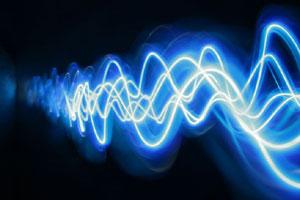Wednesday, July 22, 2009
What if a group-mind made a music video?
Palindromy and Time-Reversals
Here's a palindromic film: playing it backwards would yield the same film experience.
Though not palindromic, I can't help but be reminded of the "Patience" episode of Wonder Showzen. (Warning, if you've never seen Wonder Showzen before, "Patience" may not be the best introduction.)
Thursday, July 16, 2009
Accelerando

I just finished reading Accelerando by Charles Stross today. My two word mini review is: Wow, damn. Slightly longer: I'd have to rank this up there with Sterling's Schismatrix, Stephenson's Snow Crash, Vinge's A Fire Upon the Deep, and Egan's Diaspora as far mind-bending idea-saturation goes. This is a depiction of a post-singularity/post-human future thoroughly informed by contemporary experience with internet and related technologies. Stross also demonstrates quite a bit of familiarity with philosophy of mind, especially Dennett's (the Dennettian notions of zimboes and Cartesian theaters get put to work). (There's quite a bit of Clark/Chalmers extended mind stuff, too.)
Thursday, July 9, 2009
Philosophers have ceded qualia to engineers
"Philosophers have ceded qualia to engineers, and the current difficult problem in AI is getting software to experience embarrassment."
--Charles Stross, AccelerandoMonday, July 6, 2009
Memory and quantum cognition
Research has shown that words are stored in our memories not as isolated entities but as part of a network of related words. This explains why seeing or hearing a word activates words related to it through prior experiences. In trying to understand these connections, scientists visualize a map of links among words called the mental lexicon that shows how words in a vocabulary are interconnected through other words.
However, it’s not clear just how this word association network works. For instance, does word association spread like a wave through a fixed network, weakening with conceptual distance, as suggested by the “Spreading Activation” model? Or does a word activate every other associated word simultaneously, as suggested in a model called “Spooky Activation at a Distance”?
Although these two explanations appear to be mutually exclusive, a recent study reveals a connection between the explanations by making one novel assumption: that words can become entangled in the human mental lexicon. In the study, researchers from the Queensland University of Technology (QUT) in Australia and the University of South Florida in the US have investigated the quantum nature of word associations and presented a simplified quantum model of a mental lexicon.
Neuromancer turns 25

"Neuromancer turns 25: What it got right, what it got wrong" @macworld:
Neuromancer tells of famous hacker, McCoy Pauley, who originally taught Case how to hack and later died of heart failure during an especially dangerous assault in cyberspace. But before Pauley died (in the clinical sense), some people hooked his brain up to a computer and dumped the contents--his hacking expertise, memories, habits, idiosyncrasies, everything--out onto a ROM cassette, creating a "construct" of the former hacker. Long after the flesh-and-bone Pauley's death, Case and Molly steal the construct, which can think and talk, so that Pauley can help them complete their mission.
The conversations between Case and "the flatline" as he calls the construct, are priceless. The construct isn't quite sure whether he's alive or dead, and when he learns that he is just data on a disk he isn't very happy about the situation. Pauley eventually asks Case to erase the ROM, effectively putting his mind to rest for good.
Thursday, July 2, 2009
Natural Born Solipsists
Group Mind Definition
New Progress Toward Quantum Computer

From NatureNews: "Spooky computers closer to reality: Solid-state quantum processing demonstrated."
The system processed two algorithms written specially for quantum systems.
The first is Grover's search algorithm, also known as the reverse phone book search, where someone's number is known but not the name. The processor essentially reads all the numbers in the phone book at once to find the single correct answer. "At the end the qubit will be in one state, not superposed, and that's the answer," says DiCarlo.
The second, more simple, algorithm, the Deutsch-Jozsa algorithm, tests whether the flip of a coin is fair or not.
DiCarlo's processor got the reverse phone book search right an impressive 80% of the time and the coin-flip algorithm right about 90% of the time.
[...]
But this technique could not read out the answer in a system with many more qubits, says quantum-computing expert Hans Mooij from the Delft University of Technology in the Netherlands. The development of the processor is good news Mooij adds. "This is a necessary step," he says. "If this can be done, the next thing can be done."
DiCarlo is cautious. "We've made a very simple quantum processor," he says. "It's by no means a quantum computer."
He is working to give the processor more qubits, and so more processing power. He thinks that scaling up to three or four quibits will be relatively straightforward, but beyond that the problem becomes a lot harder, and the coherence time needed will be very difficult to attain. Mooij agrees: "From three or four to ten they will need to make a big step again."

